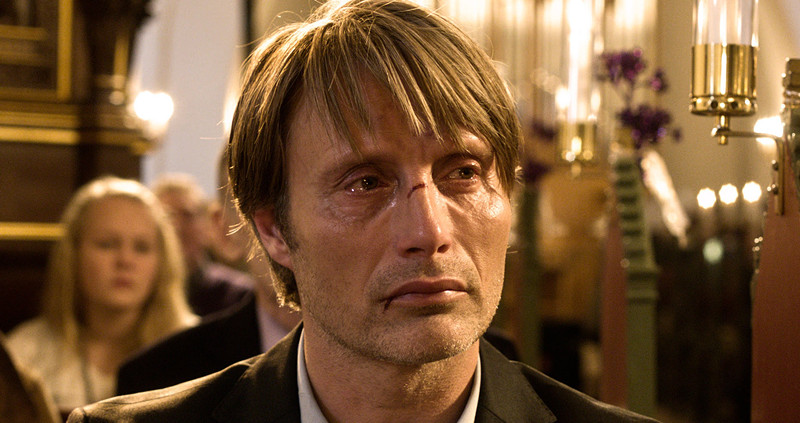
There are movies that will stay with us for weeks, months, or even years after watching them. These are the movies that allow the viewer to think and look at a topic from totally different perspectives. These films make the viewers think and often discuss them for hours. The brilliant scripts and directorial intentions of these movies are so profound and interesting that they deal with universal themes, and over time they become cinematic classics.
What the Lumiere brothers started in the end of the 19th century became a powerful mechanism in the 20th century and an artistic medium where many previous taboo topics were spoken out loud and in the name of cinema. The 21st century has brought new challenges and directors have come up with new themes and ideas. In most cases, these movies bring forward the topics that we may or may not have thought about, but after watching them, we reach deeper and perceive the essence even more.
Indie movies are the best way to relate to thought-provoking movies. In the 21st century, directors have reflected on topics such as solitude, social pressure, the line between reality and imagination, and human reactions in times of need. In some countries, one of the only ways to talk about their problems is to make a film about it, like Andrey Zvyagintsev did in his “Leviathan”, where he described the situation in modern Russia.
Love and its aftermath, love or being loveless in a new era, the rise of corporations and the gradual disappearance of small cultures, the presumption of innocence and modern public relations – these topics reflected in movies allow film lovers to reevaluate many things, to think more about the world they live in and the challenges they all face. In trying to re-analyze each scene, you go back to those movies and you might think a lot about the open finale and the director’s decision to interpret it. In this article we present the 10 most thought-provoking movies of the 21st century.
1. The Lobster (2015, Yorgos Lanthimos)
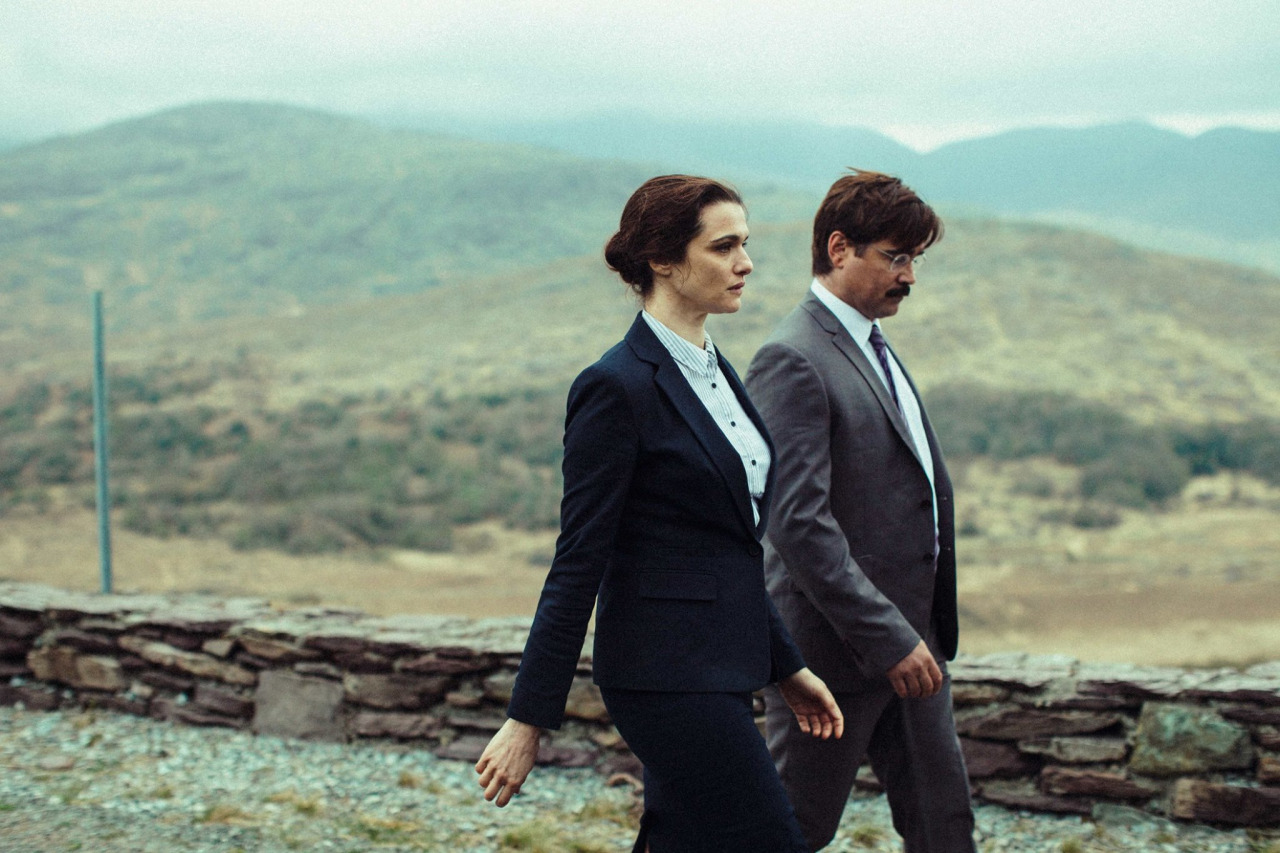
The talent of Colin Farrell was seen and rediscovered by film lovers and film critics in a collaboration with Greek director Yorgos Lanthimos. “The Lobster” is exactly the kind of film that will stay in the viewer’s mind for weeks and more, perhaps even years. Lanthimos created an absurdist dystopian black comedy here: after the main character’s marriage ends when his wife leaves him for another man, Farrell’s character is escorted to a hotel where single people live; they have to find a romantic partner in 45 days, otherwise they will turn into the animal of their choice. The surrounding forest is full of such animals. At the same time, there is a rebel group where pairing up is a crime.
“The Lobster” is a story about society demanding that people be in a romantic relationship, as if otherwise a person is some kind of creature. In the case that he can’t find a romantic partner within the stipulated time, Farrell’s character chooses to become a lobster. He is like a lobster – silent and quiet, unintuitive, inert and slow. Lanthimos created a world where he sarcastically describes a mating-oriented society.
The hotel, where people looking for romantic partners meet, is a kind of allegory of today’s algorithms and ever-evolving systems that try to pair people based on certain similarities. In order to find someone, the characters of “The Lobster” deliberately create similar characteristics to others. To avoid turning into a lobster and to find a romantic partner, the main character shows himself as a heartless and cruel creature to charm a woman of a similar character. And yet, love is found where it is forbidden.
“The Lobster” is a sarcastic take on society’s perception of love; it is a black comedy about people who think that love is all about similarities with another person. Lanthimos showed people who are ready to change physically and morally to find a romantic partner.
The film is the Greek director’s first English-language film. Colin Farrell, Rachel Weisz, Olivia Colman and Lea Seydoux comprise the main cast and they all are absolutely amazing. “The Lobster” is an absurd tragicomedy about how love and relationships are determined by rational principles.
2. Leviathan (2014, Andrey Zvyagintsev)

“Leviathan” is a 2014 movie by the famous Russian director Andrey Zvyagintsev. The movie won a Golden Globe in the Best Foreign Language Film category, and film critics thought the Oscar would go to the Russian director in the same category, but that year the Polish film director Pawel Pawlikovski won with his movie “Ida.” However, not winning the Oscar doesn’t diminish “Leviathan” and Zvyagintsev at all, as it is one of the deepest and most thought-provoking movies of the 21st century.
Zvyagintsev masterfully crafted the current look of modern Russia. The life of the main characters is reminiscent of the biblical character Job and the story of Naboth’s vineyard. “Leviathan” is a story of the ordinary people’s struggle versus money, corruption, government, and church empowered by the corrupted officials, and Zvyagintsev deals with the important social and political issues of contemporary Russia. In the Old Testament, Leviathan appears as a multi-headed serpent that is killed by God and given as food to the Hebrews in the wilderness. Leviathan is referenced in the book of Job and it represents an allegory that is a force that plunges the population of rural Russia into a mass of corruption, injustice, and utter hopelessness.
The story is set in a fictional town of Pribrezhny where a series of tragic events occur around a local car mechanic, Kolya, and his family. The city’s corrupted mayor has decided to expropriate the land on which Kolya’s house has been built. The mayor says he wants to build a telecommunications mast on Kolya’s land and offers him an undervalued sum for compensation, but Kolya believes his real plans include to build a villa for himself. Kolya knows this war is already lost, but still he asks for help from his old friend, a successful lawyer in Moscow.
Throughout the movie, both Kolya and the audience see the swamp of corruption from which there is no way out. The director sets an environment where it is really hard to see the hopeful beam of the future. Zvgyagintsev, in the plainest manner, tells the story of modern Russia. With masterful cinematography, lighting, and the score by Philip Glass, the director shows the audience the despair in the synthesis of corruption.
“All power is from God, where there’s power there is might,” says the Archbishop of the city, and encourages the mayor to expropriate Kolya’s land. In “Leviathan”, Archbishops talk in the name of God and approve tyranny. Those who have ever lived in the post-Soviet countries know for sure that the narrative told by Zvyagintsev is not an exaggeration. The Oscar-nominated director is one of the few exceptions who is not afraid to tell the hidden truth. The only criticism that “Leviathan” has faced was from Russia’s Minister of Culture. Meanwhile, in Russia, many have praised the movie and have mentioned that it raised important questions about the state of the country.
Most film critics refer to the film as a masterpiece and emphasize the unique style of the genius that is Andrey Zvyagintsev. “Leviathan” is not just a film of political allusions and allegories – it is an impressive masterpiece about human tragedies. A gruesome seaside town, where the skeleton of Leviathan rests on the shore and defines the life of the locals.
3. Force Majeure (2014, Ruben Ostlund)
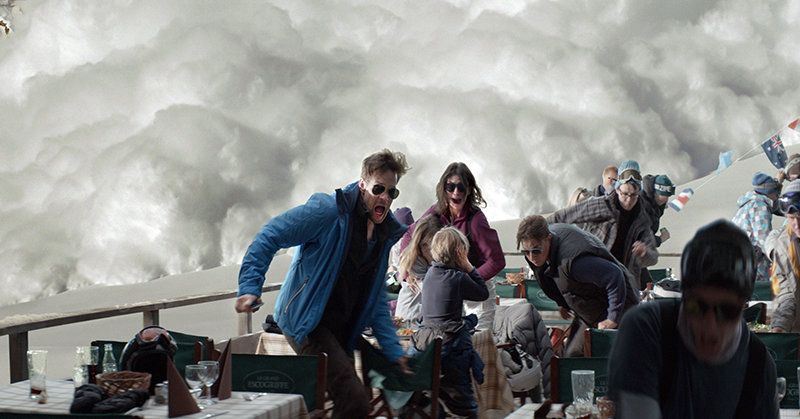
“Force Majeure” was released in the same years as “Leviathan”, but Ruben Ostlund’s movie depicts a totally different world and the problems of this world. The Swedish director brings the universal subject to the forefront – how even one minute can forever change people’s attitudes toward one another.
While vacationing in the French Alps, a family witnesses an avalanche and for a moment it seems they are facing danger. People in panic are running around; a frightened mother of two rushes to rescue her children, but her husband selfishly tries to help himself and runs away, leaving his family behind. It then appears that the avalanche is artificial, but the husband’s selfish gesture was real and it cracks his marriage and his relationship with his children.
“Force Majeure” is a stunningly crafted and sarcastically filmed psychodrama, a sardonic comedy that allows us to go dig deeper into marital life and into the characters’ emotions. The director takes us into their intimate habitat, creating a deeply uncomfortable ambience. While watching the movie, viewers may get the feeling that the characters are under constant observation, that they are being judged by the viewers.
The film is set in a luxury hotel and those empty scenes, set in the corridors, are sometimes reminiscent of “The Shining” by Stanley Kubrick. Ruben Ostlund creates an atmosphere where everything is a façade; we see a handsome middle-class family on a ski vacation in a sophisticated hotel, but the camera navigates through the psyche of the characters and behind the façade everything is not so perfect, moreso on the contrary. The director is tough and sometimes even mocking his characters, and overall he creates a movie with intellectual humor and grim entertainment.
4. Okja (2017, Bong Joon-ho)
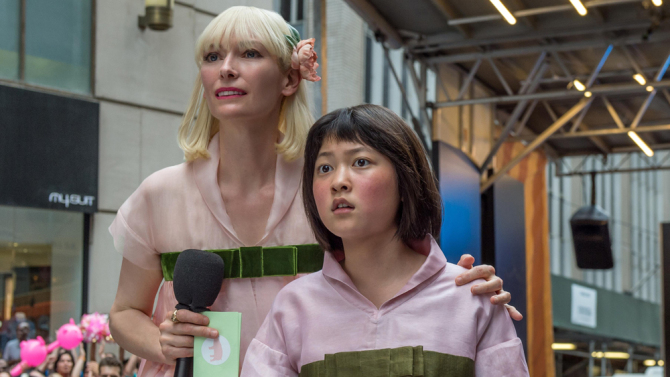
The Oscar-winning director Bong Joon-Ho’s 2017 movie “Okja” premiered at the Cannes Film Festival. This film is a heartwarming tale of a little girl and her giant pet mutant pig, which was created in a lab. “Okja” is also a story of animal rights activists who try to defend the pet mutant pig from a huge corporation – a meat company.
The tale soon turns into an intense race between the activists and the spies working for the company. If the viewer is familiar with Bong’s works, they should know it’s his signature to mix different genres, and in the end, it’s difficult to tell what exactly they’re watching – is it drama, comedy, or science fiction? But one thing is true: “Okja” is a thought-provoking movie.
Mija is a young Korean girl living with her grandfather and her favorite pet Okja, but after 10 years they have to be separated. Okja is sent to a meat factory in New York City, and this is where Mija’s journey to save her favorite pet begins. From the Korean mountains to New York, it is a journey filled with danger and obstacles, but motivated by friendship and love.
Bong tells the story of the world turning into a huge corporation. In this masterfully written script, the director underlines topics like corporate responsibility and animal rights; it’s a satire in a Bong Joon-ho style. What seems to be a simple fairy tale-like narrative is a real masterpiece, with some brutal scenes.
The movie is shot brilliantly and it has an amazing cast featuring Tilda Swinton, Jake Gyllenhaal, and Paul Dano.
5. Amour (2012, Michael Haneke)
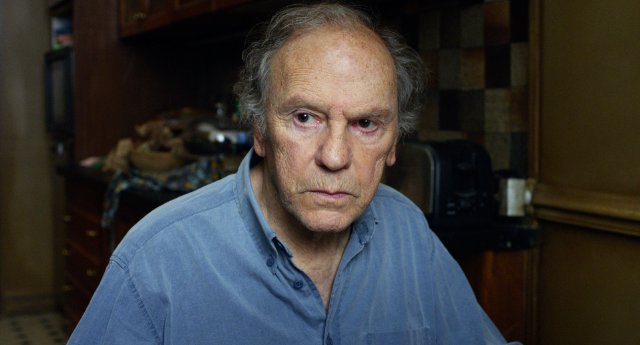
What does love look like at the end of life? This is the main concept of yet another masterpiece by Austrian filmmaker Michael Haneke. The director addresses the sensitive subject matter and shows a great love story that will soon be destroyed by death. The main characters are Anne and Georges, who have spent their lives dedicated to their careers and to each other. In their eighties, Anne has a stroke and Georges has to watch his beloved wife suffer.
“Amour” is not an easy film to watch; it shows the brutal truth surrounding old age and relationships. Haneke has always made detail-oriented films and “Amour” is no exception. Life, death, and everything in between is scrupulously described in this Oscar-winning masterpiece. French film legends Emmanuelle Riva (best known for “Hiroshima, Mon Amour”) and Jean Louis-Trintignant (best known for “A Man and a Woman”) are brilliant in this film.